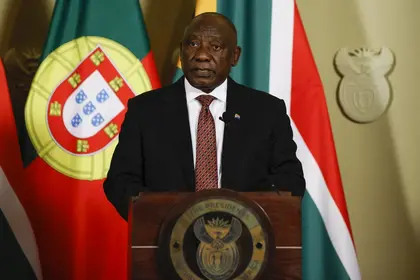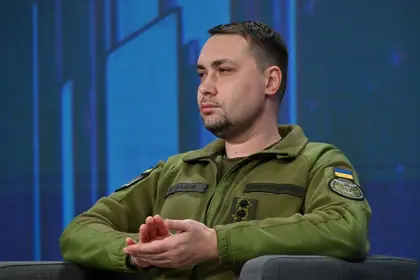On Monday, June 19, South African President Cyril Ramaphosa celebrated an African mission aimed at brokering peace in Ukraine. He went as far as calling it “historic,” highlighting that it marked a milestone by being the first time for African leaders going on a peace mission beyond the boundaries of their own continent.
Ramaphosa shared his thoughts after returning from discussions held in Kyiv, Ukraine’s capital, and Saint Petersburg, Russia.
JOIN US ON TELEGRAM
Follow our coverage of the war on the @Kyivpost_official.
According to Ramaphosa, one of the mission’s noteworthy achievements was the positive reception received from both sides, Ukraine and Russia.
The African continent held high hopes for the trip, anticipating that it would contribute to resolving the war that has significantly impacted living standards across Africa. The conflict has led to a scarcity of grain and a sharp increase in global food prices.
However, the glaring reality remains: neither of the warring sides was willing to engage in peace talks without certain preconditions.
Ukraine seeks to restore its borders to the way they were in 1991. This would require Russia to withdraw from all the territories it has forcefully taken from Ukraine over the last 10 years, including the Crimean Peninsula. Yet the Kremlin strongly opposes this demand and is unwilling to comply.
This raises the question of whether the whole endeavor has made any difference or if it was merely a ploy by Ramaphosa to attract attention on the global stage, diverting focus from the mounting problems in South Africa.

New Front? Reports Claim China is Secretly Backing Russia with Troops
The “staged” missile attack scandal might be the South African peace mission’s main “achievement.”
The African peace mission in Ukraine was marred by a scandal with “a staged missile attack.”
On Friday, June 16, shortly after the arrival of an African delegation, Kyiv was targeted by a Russian missile attack. However, Vincent Magwenya, the spokesperson for South Africa’s President, denied witnessing any attack and called it deliberate misinformation.
“It’s very strange that we didn’t hear or see an explosion,” he said. “There’s obviously some deliberate misinformation being spread here. People are going on about their day,” he told South African news outlet News 24.
Referring to a short video he posted on Twitter around the time the air alert was in place, he said of the reports of explosions: “From my own experience and those I am travelling with, yes, I am disputing it. Watch the video I shared.
Magwenya’s comments were swiftly taken up by Russian state media as evidence the missile attack was faked.
President Ramaphosa himself, during a press conference after meeting Ukrainian President Zelensky, acknowledged reports of missile strikes, saying that “the launch of missiles today does not deter us and has not stopped our call for de-escalation.
Blurred reality and incomplete neutrality
The neutrality of the African delegation as a whole has been questioned multiple times, particularly South Africa’s stance on Moscow’s full-scale invasion of Ukraine. South Africa had refrained from condemning the invasion and had even deepened its military ties with Russia since the conflict began.
Zelensky argued that condemning Moscow was crucial to send a clear message to the Russian people, making them aware of their president’s actions leading to their international isolation.
During the press conference, President Ramaphosa reiterated some of the narratives allegedly found in Russian propaganda. He expressed respect for the people of Ukraine but also emphasized the importance of a sense of security for “all countries involved” as the basis for any peace agreement.
“There are offensives on both sides, and we are saying there must be de-escalation as both countries proceed on the road to peace.”
Zelensky said that he would not allow himself to be forced into any negotiations unless Russia withdrew its forces from Ukrainian territory.
Following the press conference, Zelensky criticized the rhetoric of African leaders who call Russia’s war against Ukraine a “conflict” or “crisis.” He emphasised that the ongoing “conflict” was not merely a crisis but a full-fledged war, resulting in constant rocket attacks, civilian casualties, and ecocide.
“Some of my colleagues continue to call this war a crisis. And even now, publicly, they continue to do so. This is their right to choose, but it shows that we have different assessments of the situation,” Ukraine’s President said.
Zelensky also stressed that the problems with grain in Africa were not the result of a “crisis,” but the fact that Russia single-handedly blocked Ukrainian ports.
While the efforts of Ramaphosa’s delegation failed to achieve any of the peace mission aims, he maintains that they have at least created an opportunity for future dialogue.
It is plausible that, amidst domestic challenges such as deteriorating infrastructure and rising dissatisfaction with his administration, Ramaphosa sought to highlight a diplomatic victory on the global platform.
Regrettably for him, this particular peace mission has not yielded any triumph.
You can also highlight the text and press Ctrl + Enter










